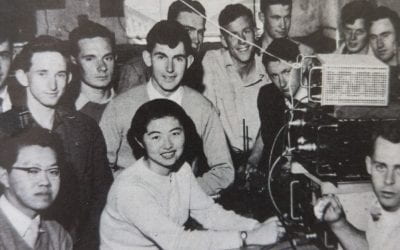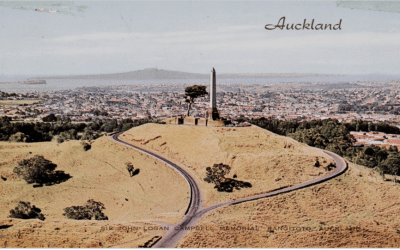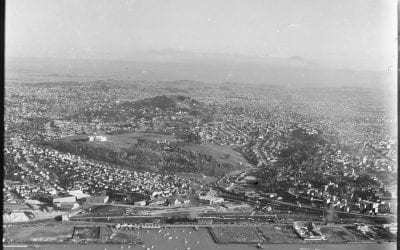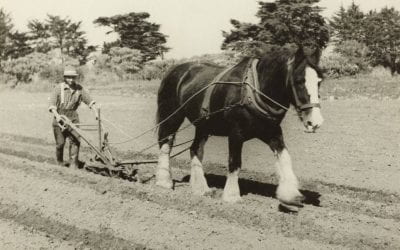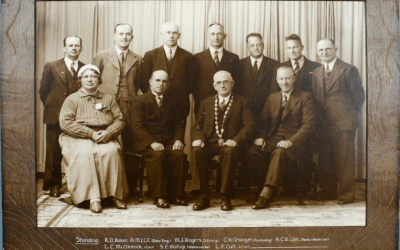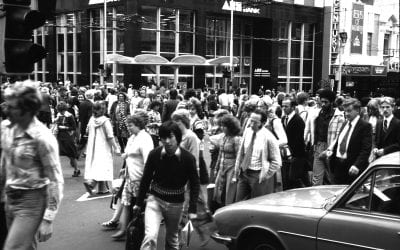AHI Summer Research Scholarships
One of the key goals of the AHI is student engagement. The Summer Research Scholarship programme run at the University of Auckland recruits high achieving student scholars and aims to give recipients research experience, an opportunity to work with leading researchers at the University of Auckland and contribute to the wider research community. It also allows students to explore the potential of postgraduate study.
The Auckland History Initiative views Summer Research Scholarships as an integral way to engage students in Auckland history and to strengthen relationships with the Auckland GLAM (galleries, libraries, archives and museums) sector. To continue this successful programme, the AHI is seeking potential private sponsorship, please contact: ahi@auckland.ac.nz
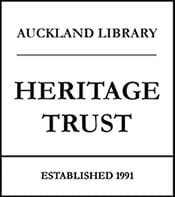
News:
The new ‘Auckland Library Heritage Trust John Stacpoole Scholarship’
The AHI is delighted to announce a new named Summer Scholarship, ‘The Auckland Library Heritage Trust John Stacpoole Scholarship’ in recognition of John Stacpoole’s significant financial contributions and years of service on the Trust. Read more
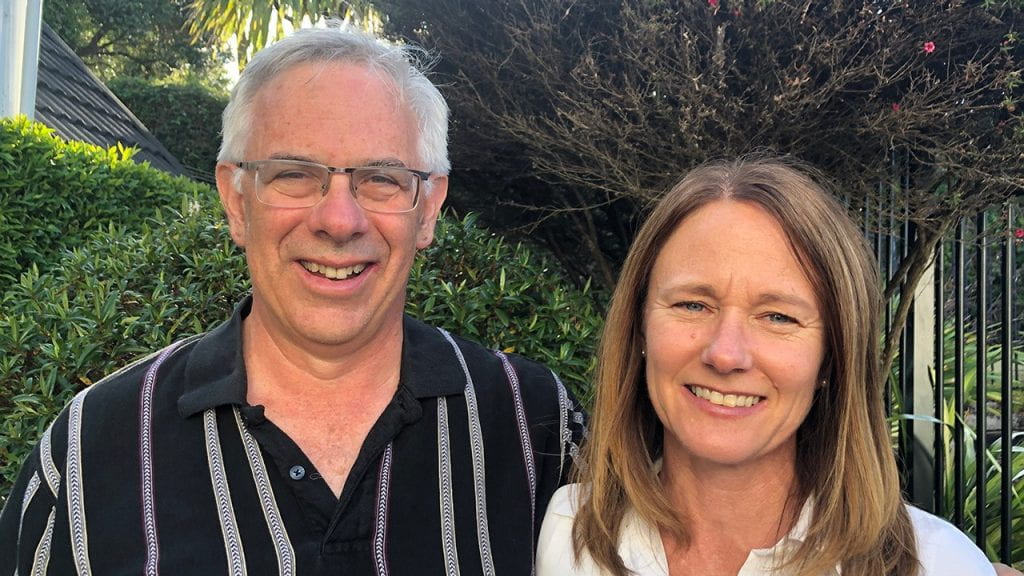
New scholarship helps Arts students uncover Auckland’s history
A passion for history, along with a desire to give back led to the establishment of the Jonathan and Mary Mason Summer Scholarship in Auckland History. Read more
2025 Summer Research Scholars

Alexandru Cotos
Alexandru completed his Bachelor of Arts in History and Politics and International Relations in 2024 and is now pursuing a Bachelor of Arts (Honours) in History.
Having arrived there as a baby in 2004, Alexandru and many other Aucklanders know Auckland International Airport well, but not its history. Through his research, Alexandru has uncovered a long and fascinating history of not just the current Airport but ones of the past. This story starts with the first flights in Auckland, the first airports in Auckland, the process of selecting a site, the history of the site, and the modern use of the Airport as a place for community action. Alexandru’s research reveals that Auckland International Airport is a significant site of history, representing some major themes in Auckland’s history, like isolation, protest, and the failures of bureaucracy.
Alexandru would like to thank Dr Jess Parr and Professor Linda Bryder for supervising this project and supporting his research. He would also like to thank the team at Walsh Memorial Library at MOTAT, Archives New Zealand, University of Auckland Special Collections, and Auckland Libraries Research Central and South for their assistance in accessing the needed materials for this project. Finally, Alexandru would like to thank the Auckland Library Heritage Trust for funding this research project.

Cameron Gregan
Cameron is completing a Bachelor of Laws and Bachelor of Arts conjoint, majoring in English. He is interested in pursuing a career in primary teaching.
Cameron researched the story of Auckland Teachers College from 1926 to 1986, and how the institution’s student community was adversely affected by political and organisational decisions made during that time-period. The story of Auckland Teachers College, and its Epsom campus, was of interest to Cameron given the campus’ recent closure. By drawing on student magazines and testimonies from the time-period, Cameron discovered that Auckland Teachers College was fractured by the institution transforming from a ‘glorified secondary school’ into a ‘pseudo-university.’
Cameron would like to thank his supervisors, Dr Jess Parr and Professor Linda Bryder, for supporting his research journey. In addition, he would like to thank the University of Auckland’s Cultural Collections team and Auckland Libraries for assisting his search for primary sources. Finally, he would like to thank the other members of his Auckland History Initiative cohort for their feedback and encouragement.

Rosa Ewing
Rosa is currently in her fourth year of a conjoint Bachelor of Arts/Bachelor of Science, majoring in History and Environmental Physics.
With an interest in nineteenth-century history and the New Zealand Wars, Rosa wanted to investigate how the wars, although not geographically an ‘Auckland History,’ affected life in Tāmaki Makaurau. On the suggestion of Dr Rowan Light, Rosa’s project focuses on an abridged version of the Manukau Wesleyan Circuit Baptism Register (1849-1871). Her project explores what the baptism register tells us about Māori-missionary relations on the Manukau leading up to and during the Taranaki and Waikato Wars. This includes the decline of Māori engagement with Wesleyan Methodism but also looks at outliers that challenge these trends. Rosa’s project also explores how the register has been interpreted by its editor, Bernard Gadd, and how the narrative he told may have been influenced.
Rosa would like to thank her supervisors, Dr Jess Parr and Professor Linda Bryder for their support and guidance throughout the project. She would also like to thank Dr Rowan Light for his guidance, the teams at the Auckland University Cultural Collections, Auckland Libraries, Auckland Museum, and Methodist Church of New Zealand Archives for their assistance throughout her research. Lastly, Rosa would like to thank the Auckland History Initiative and Faculty of Arts and Education the opportunity to pursue her research.

Germaine Han
Germaine completed her Bachelor of Arts in History and Logic and Computation at the University of Auckland in 2024. Having grown up outside of New Zealand, she was interested in looking into Auckland’s cross-cultural histories.
Germaine’s research examines the Auckland branch of the New Zealand China Friendship Society (NZCFS), with a specific focus on the branch’s activities between 1970 and the early 2000s. Although the society has existed since 1952, not much has been written about them. Germaine’s research particularly looks at the challenges the Auckland branch faced, and how their relationship with China changed throughout time.
Germaine would like to thank her supervisors, Dr Jess Parr and Professor Linda Bryder, for their warm support, feedback, and guidance throughout this research project. She also thanks Jonathan and Mary Mason for their financial support in funding this scholarship. Germaine extends her gratitude to the archivists at the University of Auckland Special Collections for their advice and assistance. She would particularly like to thank Ian Brailsford for his insights and suggestion to research the NZCFS and Katherine Pawley for her support and permission to access the Cecil Fowler collection. Finally, Germaine would like to thank Dr Manying Ip for her advice in the beginning of this project, and her cohort for their feedback and dedication.

Riley Bogard-Allan
Riley is currently in his third year of a Bachelor of Arts and Bachelor of Commerce conjoint degree, majoring in History, Economics and Finance. His research project sits at the intersection of these three subject interests. It also pays homage to architectural historian John Stacpoole OBE, a foundation trustee of the Auckland Library Heritage Trust, which generously provides two Summer Research Scholarships annually in his name.
Riley’s research explores how built heritage has reflected change in Auckland’s CBD, particularly during the 1980s reform period. He is fascinated by the economic, social and cultural forces of that period and their impact on the CBD’s landscape. In analysing this, Riley documented the life of three iconic Queen Street locations: street numbers 131, 151 and 205. Riley’s case studies illustrated a clear shift in the Auckland CBD from a ‘retail mecca’ to the home of white-collar, professional services in and around the 1980s. His research also revealed how some at the heart of the 1980s boom period had a sweeping disregard for Auckland’s built heritage. This often resulted in the loss of key heritage buildings, inevitably replaced with the towering skyscrapers symbolic of that period.
Riley wishes to thank everyone who helped with his research. He was expertly supervised by Dr Jess Parr and Professor Linda Bryder. He was assisted by experts from the University of Auckland, Auckland Libraries, Auckland Council and the National Library of New Zealand. He is also grateful to all other sources from which he gathered material, including but not limited to Digital New Zealand, Donovan Images, Land Information New Zealand and Te Ara – The National Encyclopedia of New Zealand. Riley reserves a special thanks to David Simcock and the team at Auckland Library Heritage Trust for their support.

Toby West
After his undergraduate study at Victoria University, Toby completed a Bachelor of Arts (Hons) at the University of Auckland, majoring in philosophy. In 2025, he will be undertaking a Master of Arts majoring in Politics and International Relations.
Toby’s project covered the history of Holy Trinity Cathedral in Parnell, with a particular focus on various disputes and controversies over the funding, design, and construction of the building. Across his four articles, he traced the history of the buildings(s) chronologically, from Bishop Selwyn’s acquisition of the site in the 1840s to the completion of the cathedral in 2017. By studying primary sources available in the University’s archives, Toby uncovered details about the legal disputes surrounding Mina Tait Horton’s generous 1935 bequest to fund the project, as well as the decades-long controversy surrounding the design of the cathedral’s nave. He finishes by reflecting on what the modern state of the cathedral says about Auckland’s history, and how it fits into a larger story about religion, culture, and national identity in New Zealand.
Toby would like to thank his supervisors, Dr. Jess Parr and Professor Linda Bryder, as well as the Faculty of Arts for funding his project. He would also like to thank the team from the University’s Cultural Collections, in particular Ian Brailsford and Sarah Cox, for their indispensable help with navigating the architectural archives. Finally, he would like to express his gratitude to the rest of the AHI cohort (Alexandru, Cameron, Germaine, Riley, and Rosa) for providing excellent feedback throughout the writing process.
2024 Summer Research Scholars

Katryn Baker
Katryn completed her Bachelor of Arts in Art History and History at the University of Auckland in 2023 and is currently undertaking her Master of Arts in Art History. Growing up in Rotorua, Katryn was always fascinated with how lively and dynamic Tāmaki Makaurau Auckland was, and this fascination continued throughout her studies here in the city.
Katryn’s research considers where women were positioned in the Auckland art scene and how this changed and developed from 1928 until the late 1980s. This interest in the lives of women artists was sparked in her early research when she noticed that men such as Colin McCahon were situated as the drivers of art history, often at the expense of marginalising women artists. Katryn took this research opportunity to uncover the role that women played in the Auckland art scene, discovering just how important and influential they were too.
Katryn would like to thank her supervisors, Dr Jess Parr and Professor Linda Bryder for their continuous support and encouragement throughout this project. She extends a sincere thank you to Johnathon and Mary Mason for funding this scholarship. Katryn would also like to thank the EH McCormick Research Library, Auckland Libraries Heritage Collections, and the University of Auckland Special Collections for their guidance and advice. She would like to give a special thanks to Leanne Radojkovich at the Angela Morton Room for giving Katryn advice at the start of her research and providing invaluable materials and insights, and to Associate Professor Linda Tyler for being her expert adviser later in Katryn’s research, providing critical information for her research.
Finally, Katryn would like to thank the many women artists she researched for their determination to continue pursuing their passion as artists despite often being undervalued and overlooked. Their fearless intentions to create will continue to inspire generations to come.

Benjamin Agnew
Benjamin is currently in his fourth year of a Bachelor of Arts, majoring in English, alongside a Bachelor of Laws.
His project looked at the history of Crown Lynn Potteries Ltd. with a specific focus on how its fortunes interacted with the economic and cultural factors of the day. Though an iconic part of New Zealand history, surprisingly little has been written about the company, partly due to a number of factory fires which have destroyed records. Benjamin particularly wanted to track the company’s relationship with broader economic policy and investigate some of the under-represented aspects of its legacy, such as its complicated relationship with its majority Māori and Pasifika women workforce on the factory floor.
Benjamin would like to thank his supervisors, Dr Jess Parr and Professor Linda Bryder, for their advice and support throughout the project. He would also like to express his gratitude towards the many other librarians and archivists at the University of Auckland and Auckland Libraries who assisted him with this project. The project would not have been possible without invaluable support from Louise Stevenson and Te Toi Uku Crown Lynn and Clayworks Museum, who provided the use of their archives and help navigating them.

Leane Te Boekhorst
Leane is in her fourth year of a Bachelor of Arts and Bachelor of Global Studies conjoint majoring in Criminology, Psychology and Global Politics and Human Rights. Contrary to her current studies, Leane wishes to complete her Masters in Primary School teaching next year.
With a major in Criminology, Leane thought it would be fitting to look into the criminal past of Tāmaki Makaurau. Her main research focus was on understanding the penal reform movements that operated in Mount Eden Prison and Auckland. Her research was built from a fascination of wanting to learn more about how crime, punishment and treatment of offenders was rationalised prior to the 21st century. The research focused on key stages of development in the penal reform area, from the opening of Mount Eden Prison to the end of the 20th century.
Leane would like to thank Dr Jess Parr and Professor Linda Bryder for their support and guidance throughout the project; the teams at the Auckland Libraries Heritage Collections and the University of Auckland Special Collections team. She would also like to thank the staff at the Auckland War Memorial Museum, the Alexander Turnbull Library, Archives New Zealand, the Salvation Army and Te Pa. Lastly, the Auckland Libraries Heritage Trust for funding her project.

Emily O’Callaghan
Em is in their fourth year at the University of Auckland, studying a Bachelor of Laws/Bachelor of Arts conjoint majoring in History and Politics and International Relations. As a keen gardener and regular market-goer, Em is interested in the ways the production and consumption of goods has changed over the decades. In research for this project they fostered a deeper understanding of the interplay between labour and migration histories – and how this shaped Auckland’s now-distant produce economy.
Em’s project discusses three key case studies from the 1890s to 1920s period: Chinese market gardeners and grocers, Dalmatian growers, and itinerant fruit and vegetable hawkers. In their discussion they seek to highlight the immense contributions of various migrant groups to Tāmaki Makaurau’s horticultural landscape and celebrate their entrepreneurship and resilience during an age of regulation and prejudice. They argue that the stories of migrant labourers offer crucial insight into the true diversity of our primary sectors, and to champion histories that have been traditionally excluded.
Em would like to thank those who made their project possible. They particularly recognise the Auckland Libraries Heritage Trust who provided funding for their research and supervisors Dr Jess Parr and Professor Linda Bryder for continual support. Em would also like to thank those who assisted them during the research process, namely Auckland Libraries Heritage Collections, University of Auckland Special Collections, the Dalmatian Cultural Society Archives and Museum, Auckland City Council Archives, Archives New Zealand, and National Library.

Henry Grey
Henry (he/him) is currently studying toward a Bachelor of Laws at the University of Auckland, but the bulk of his tertiary studies thus far have been under a Bachelor of Arts in Political Science and History. A perpetual debater, he was attracted to these disciplines because they offered an opportunity to explore the contentious and thorny issues of our time.
The focus of Henry’s research was the economics of sex work, beginning with the neoliberal reforms in 1984, and ending with the Prostitution Reform Act 2003, which decriminalised the industry. Flowing from an aim to investigate the impact of neoliberalism in less obvious, non-unionised spaces, his work covers the ways that the sex industry mirrored and interacted with wider Tāmaki Makaurau Auckland. In particular, Henry’s research zooms in on the diversity of the workers themselves – who they were, why they entered the industry, and how they experienced the self-labelled ‘Whorearchy’. These were marginalised yet determined identities – queer men, cisgender women, and transgender women – who took advantage of commercial sex to carve out economic freedom and independence for themselves in a rapidly evolving Tāmaki Makaurau.
Henry would like to thank Dr. Jess Parr and Professor Linda Bryder for their guidance and support in completing this project. Dr. Cheryl Ware also deserves considerable appreciation for generously sharing the sources and expertise from her own research. Henry would also like to acknowledge the invaluable support from Annah Pickering at the New Zealand Sex Workers’ Collective. Finally, he would like to thank the archivists at Auckland Central Library, the University of Auckland Library, the Charlotte Museum, and special thanks to David Simcock for funding his scholarship.
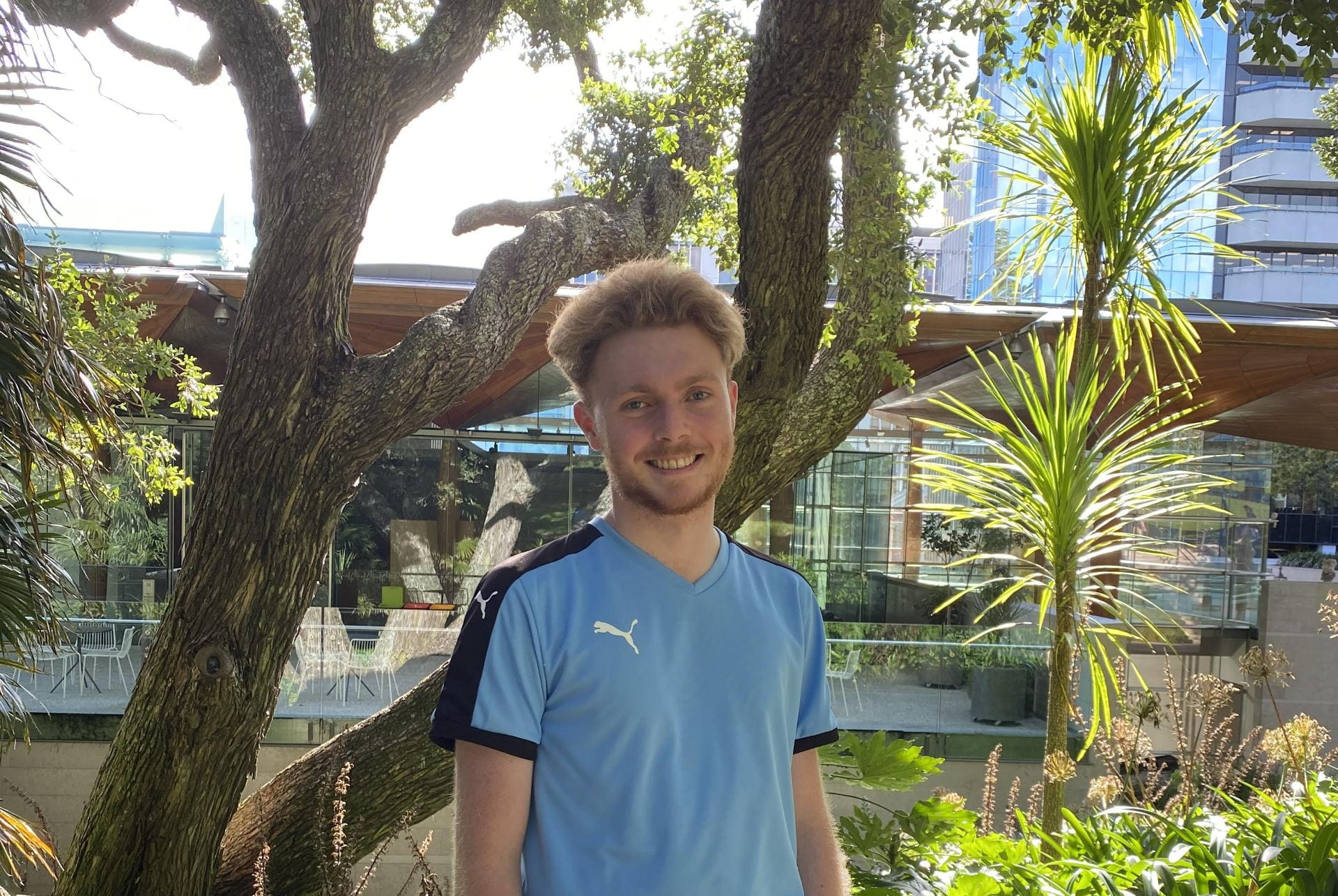
2023 Summer Research Scholars
Samuel Turner-O’Keeffe
Samuel is in his fourth year at the University of Auckland, studying a Bachelor of Arts majoring in History and German, alongside a Bachelor of Laws (Honours). Having grown up on the lower North Shore, Sam suffered through Lake Road traffic for almost two decades. Naturally, then, he was quite eager to investigate the history that shaped Auckland’s present-day transport problems.
Sam’s project arose from a simple question: if Auckland’s roads are always congested, why does the city not have a better rail network? While searching the past for answers, Sam came across a pivotal period for Auckland’s transport system – the twenty years or so between the outbreak of World War Two and the late 1950s. Over that time, Auckland’s leading decision-makers chose to rip out the city’s old tramways, and also scrapped plans for a underground, electrified rail scheme in favour of motorway construction. Sam investigated the reasons underpinning those two decisions, before evaluating whether their shared hostility to rail truly did exacerbate Auckland’s congestion woes, by contributing to the city’s car-obsessed present.
Sam would like to thank his supervisors, Dr Jess Parr and Professor Linda Bryder, for their assistance and support over the course of his project. He would also like to extend his gratitude to the archivists and librarians at the University of Auckland, Auckland Libraries, Auckland Council and MOTAT for their invaluable help in finding primary sources, including some awesome maps and striking photographs. A big thanks must go specifically to James Duncan from MOTAT, who gave up a lot of his time to discuss Auckland’s old trams and trolleybuses. Finally, of course, Sam would like to thank the Auckland Heritage Trust for funding his research, and his fellow summer scholars for their pleasant company.
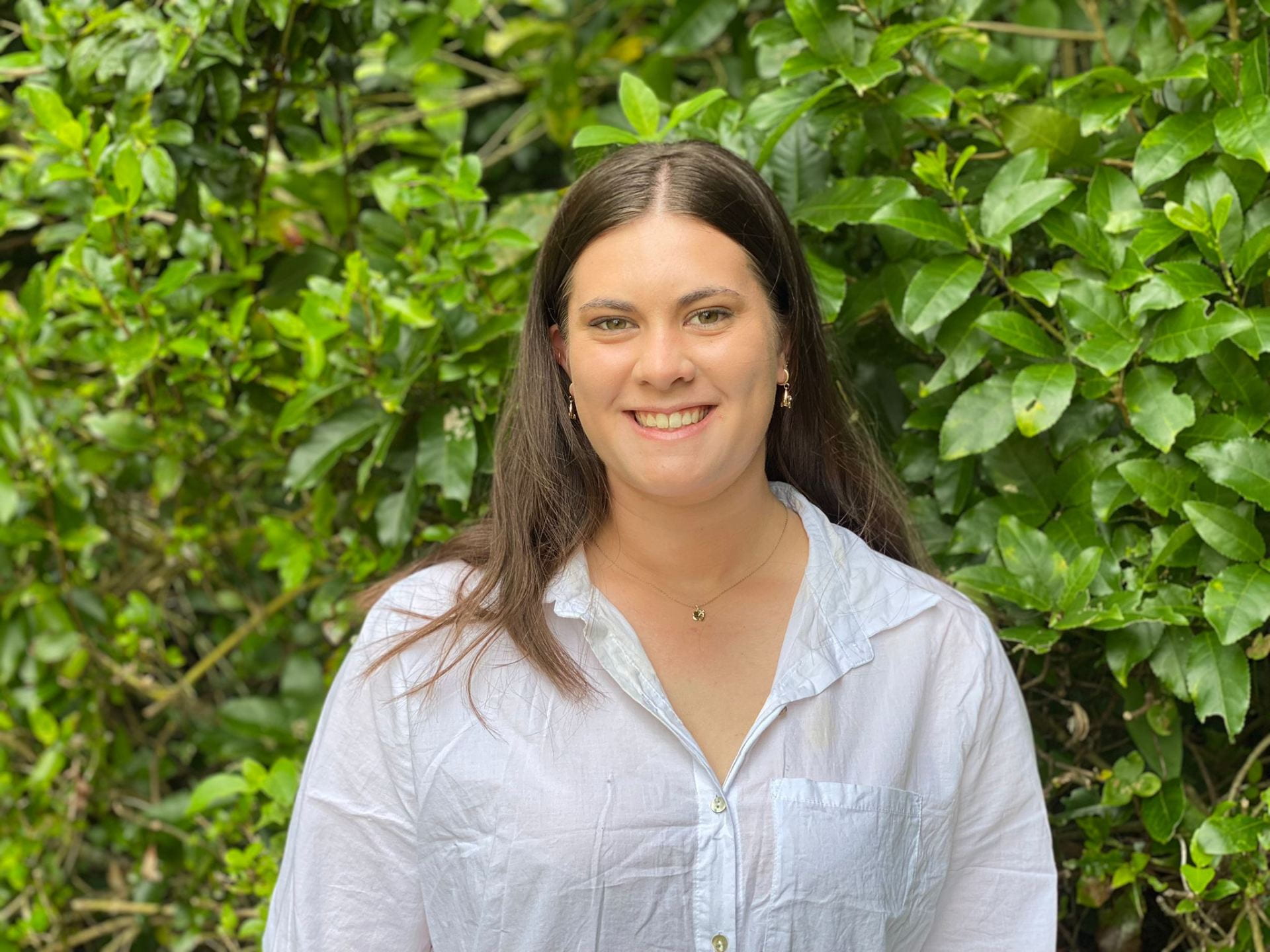
Katia Kennedy
Katia is currently in her 3rd year of a Bachelor of Arts Degree, majoring in History and English.
Katia’s project focused on the development of women’s sports in Auckland from the 1880s-1980s. Using women’s cricket and competitive marching as case studies, this project explored how the development of male-dominated and female-dominated sports differed over this period. Katia’s project revealed how sports was, and still is, a conduit for the social trends that surround women in Auckland society.
Katia would like to thank her supervisors, Dr Jess Parr and Professor Linda Bryder for their support and guidance during this project. She would also like to thank Renee Or and the rest of the Auckland Libraries Staff for their assistance, as well as Jim Allnatt and Bryan Haggit for their guidance in finding information on women’s cricket. Lastly, Katia would like to thank the Auckland Library Heritage Trust for funding this project and her fellow summer scholars for their help and support.
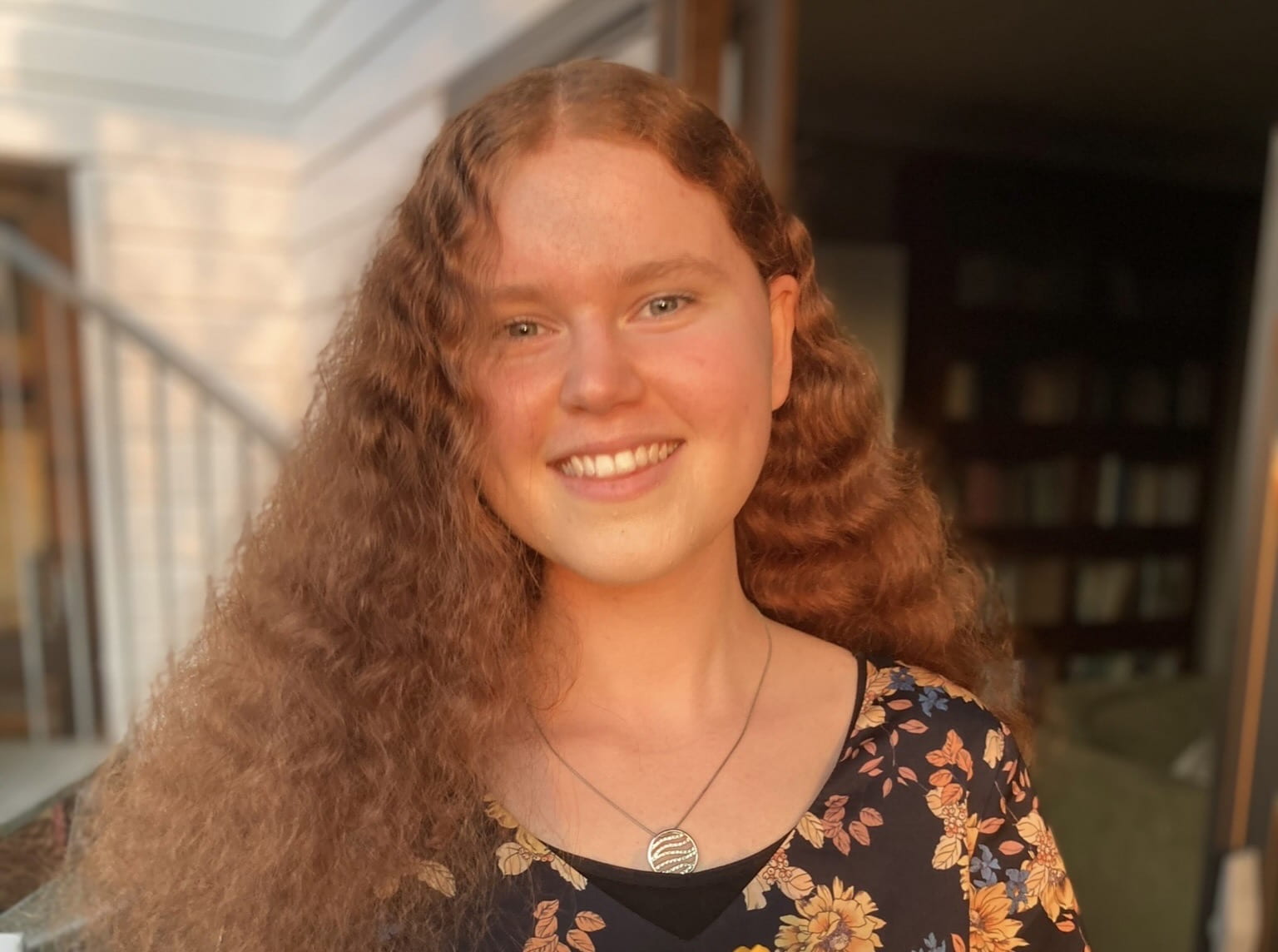
Anna McCardle
Anna is a student at the University of Auckland, currently in her third year of a Bachelor of Arts, studying History and Psychology.
In secondary school, Anna loved how her Drama classes allowed her to play a character and be someone other than herself. Studying history at University has allowed her to explore time periods and contexts different to her own. In her summer project for the Auckland History Initiative (AHI), Anna came across a collection where the fields of History and Acting converge. She was fortunate enough to access Jean Hyland’s Acting Women In Auckland Oral History collection, through Auckland Libraries’ Heritage Collections.
Using the enriching perspectives of Auckland acting women, Anna examined the late 1960s to 1980s as a vibrant and complex era for Auckland theatre. She thoroughly enjoyed researching and writing about this topic.
Anna would like to thank Jean Hyland, for making her Oral History collection available through Auckland Libraries. Anna found it incredible to hear the voices of the Auckland acting women Hyland spoke with, who were strong, dynamic and passionate about their careers, and had lived fascinating lives. Hyland expertly shaped every interview to draw out significant stories and information.
Anna is grateful to have been able to consult many other valuable sources from Auckland Libraries’ Heritage collections and the University of Auckland Special Collections. Anna thanks the archivists from these libraries who gave her seminal advice and support as she delved into their rich collections.
Anna thanks her supervisors, Dr. Jess Parr and Professor Linda Bryder. They expertly advised, guided and supported her through every stage of her project. Moreover, she is grateful to have worked alongside her fellow AHI researchers, and admires their talent and dedication to their projects. Anna also thanks her family and friends for their support.
Finally, Anna thanks Jonathan and Mary Mason for generously funding her project and giving students like her the amazing opportunity to research Tamaki Makaurau’s past.
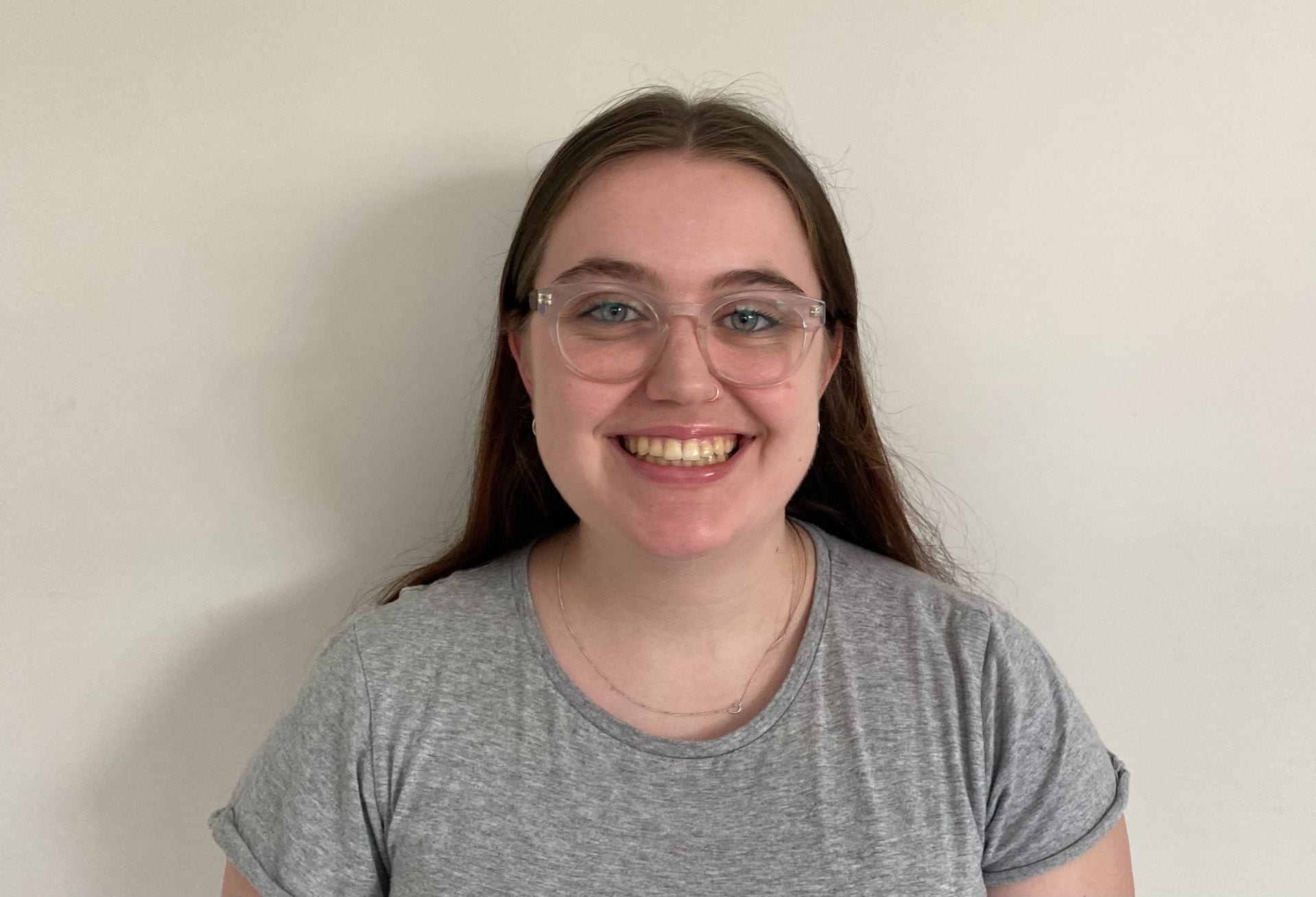
Caitlin Kilpatrick
Caitlin is in her third year of a Bachelor of Arts and Bachelor of Commerce Conjoint at the University of Auckland, majoring in History, Politics and Economics. She loves history and chose to study it as there is no other subject where she can get as invested in the topics.
Caitlin’s research explores Auckland women’s fashion during the 1920s, 1930s and 1940s. During this time period, women gained autonomy as individuals and as a group and used fashion as a means of presenting this. Department stores and magazines played a key role during this time period, providing inspiration for fashion and the clothing itself. Caitlin’s articles explore the connections between these factors.
Caitlin would like to thank Jonathan and Mary Mason for the generous funding of her research. She also extends a huge thank you to her supervisors Dr Jess Parr and Professor Linda Bryder for their constant help and reassurance throughout the project. Caitlin would also like to thank the Auckland Libraries Special Collections, the University of Auckland Special Collections, and the Auckland Museum Research Library for their guidance and assistance. Finally, she would like to thank her friends, family and fellow summer scholars for their support throughout this project.

Sasha Finer
Sasha completed her BA at the University of Auckland in Anthropology and Politics & International Relations in 2022 and is currently completing her honours year in Anthropology, with a specialisation in Archaeology. She grew up in rural South Taranaki, and since moving to Auckland for study she has become fascinated by the layers of history that build up in such a densely populated area.
Sasha’s research for this project focused on the Auckland Lunatic Asylum at the Whau and what it represented about treatment of the mentally ill in Auckland during the time it was constructed. Centring the idea that our built environments are often representative of our cultural context, her project investigates the asylum as a purpose-built structure that endures to this day as a representation of the cultural ideas and values of the society which built it.
Sasha would like to thank her supervisors Dr Jess Parr and Professor Linda Bryder for their insight and guidance throughout the course of this project; the teams at Auckland Libraries and University of Auckland Special Collections for their support in accessing the primary sources used in this project; and the University of Auckland for funding her research. Thanks must also go to Lisa Truttman for her aid in scouting out resources which helped fill in some important gaps in the timeline. Finally, Sasha would like to thank the Auckland History Initiative and her fellow summer scholars – it has been a pleasure to work alongside them throughout the course of this project.
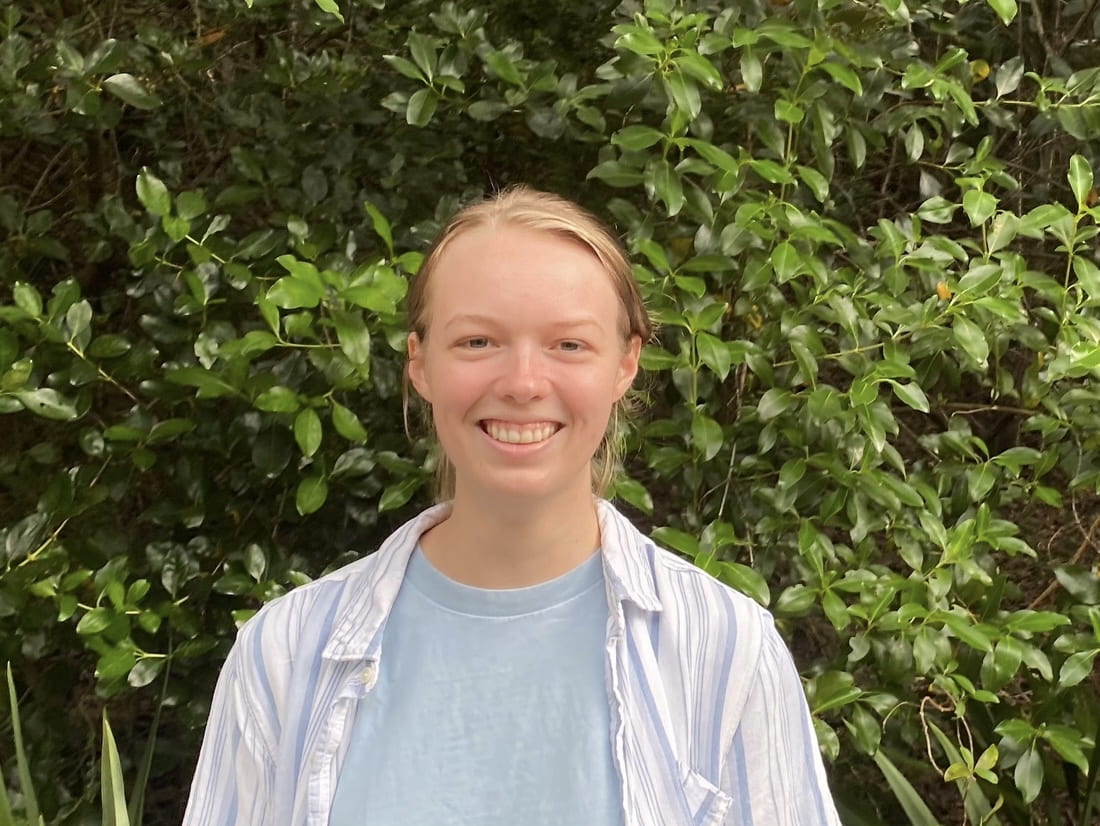
Friederike Voit
Friederike is in her third year at the University of Auckland, studying a Bachelor of Arts majoring in History and Art History as well as a Diploma of Languages in Latin. She is grateful to have received the opportunity of this Summer Research Scholarship in Auckland history, which has allowed her to explore the past of the city where she has lived for her whole life.
Friederike’s project focused on queer communities in Auckland from the 1950s until Homosexual Law Reform in 1986. Approaching this history from a spatial angle, she explored the private homes and public venues which were occupied by queer people at this time. These spaces existed as vibrant and inclusive enclaves in an otherwise hostile environment, a testament to the efforts of Auckland’s queer communities to make themselves at home. Yet their significance transcends that of a physical location. When queer spaces united around the Homosexual Law Reform campaign, they brought the culture of queer communities to the streets of Auckland.
Friederike would like to thank her supervisors, Dr Jess Parr and Professor Linda Bryder, who provided a fantastic introduction to the academic research process as well as support, feedback, and guidance throughout this project. She is also grateful to the librarians and archivists at Auckland Libraries, the University of Auckland, and the Charlotte Museum for their assistance with primary source material. The other summer scholars also contributed significantly towards making this programme an enriching experience. Finally, Friederike would like to thank the Auckland Library Heritage Trust, whose funding made her project possible.
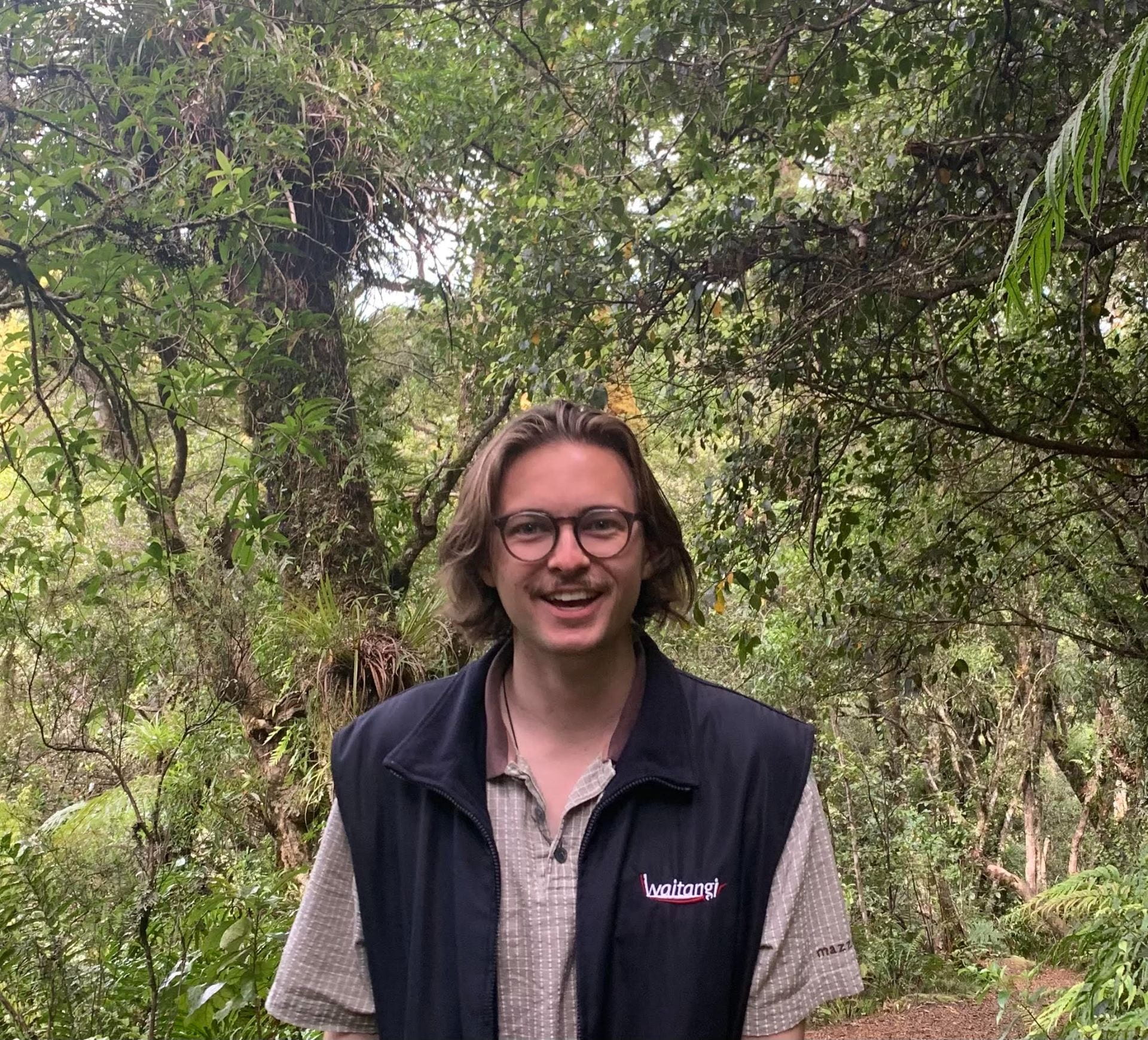
2022 Summer Research Scholars
Tommy de Silva
Tommy is an Auckland local, who’s interest in local history was sparked as a child by driving around with his grandfather and hearing how the face of Auckland has changed over time. Coming from a mixed Māori and Pākehā whakapapa Tommy can empathise and connect with diverse stories of Auckland’s past. Currently, in his final semester of an undergraduate BA in history and politics, Tommy plans to pursue postgraduate study in the humanities.
The focus of Tommy’s summer research was finding historical evidence to support the argument that historic Māori lived fluid lives, with his iwi Ngāti Te Ata Waiōhua as the case study. The article’s written with this evidence first explain the Ngāti Te Ata claim to mana in Tāmaki Makaurau, then explore the fluid rohe (territory) of the iwi and the diverse opinions and actions within it around the time of the Waikato War (1863-1864).
Tommy would like to thank his supervisors Jess Parr and Linda Bryder of the Auckland History Initiative for their guidance, the Auckland Libraries staff who helped him find sources and Roimata Minhinnick from Ngāti Te Ata and Te Awhitu from Ngāti Tamaoho for enriching his research with the Māori viewpoint. He is also grateful to Erica O’Flaherty and her team for funding this research as part of their larger project related to developing resources for the Aotearoa New Zealand history curriculum.
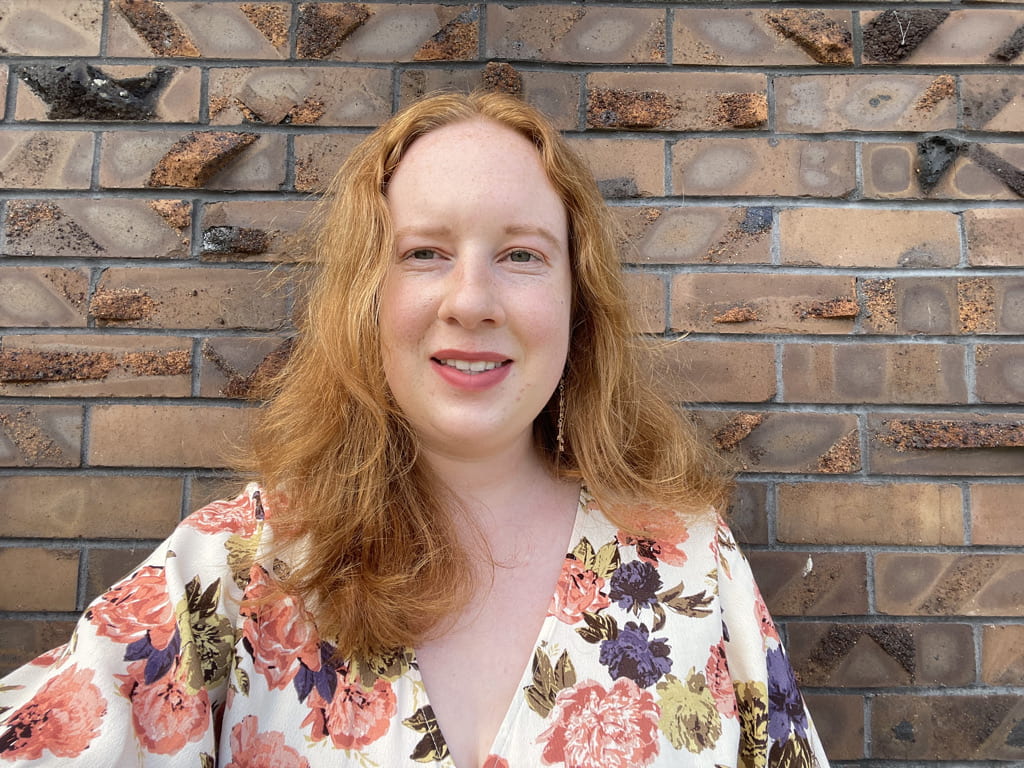
Sarah Oliver
Sarah Oliver is in her third year of studying a Bachelor of Arts majoring in History and Anthropology at the University of Auckland. Sarah’s project examines the nineteenth-century Jewish community of Central Auckland, focusing on case studies of successful Jewish merchants who lived in the beautiful villas on Princes Street and Waterloo Quadrant.
Sarah is originally from Rotorua and remembers being awed by the magnificent villas next to the University in Albert Park when she first moved to Auckland for study. It was not until a tour of Central Auckland for a second-year heritage conservation paper that she learnt of the former Jewish Synagogue on the corner of Princes Street and Bowen Avenue. Using the Jewish built heritage of Central Auckland as a starting point, Sarah investigated the tight-knit Jewish community that lived there and uncovered a story of religious sanctuary, excellence and community in the nineteenth century.
Sarah would like to thank her supervisors, Dr Jessica Parr and Professor Linda Bryder, for their support and insight, the University of Auckland Special Collections and Auckland Central Libraries librarians. She would like to give special thanks to Lesley Max and David Robinson of the Auckland Jewish community for their insight into Jewish traditions and to Sheree Trotter of the Auckland Synagogue Archives and Jewish Lives (www.jewishlives.nz) for sending information remotely while Sarah was living in Rotorua. Lastly, Sarah would like to acknowledge Erica O’Flaherty and her team for funding this research as part of their larger project related to developing resources for the Aotearoa New Zealand history curriculum.
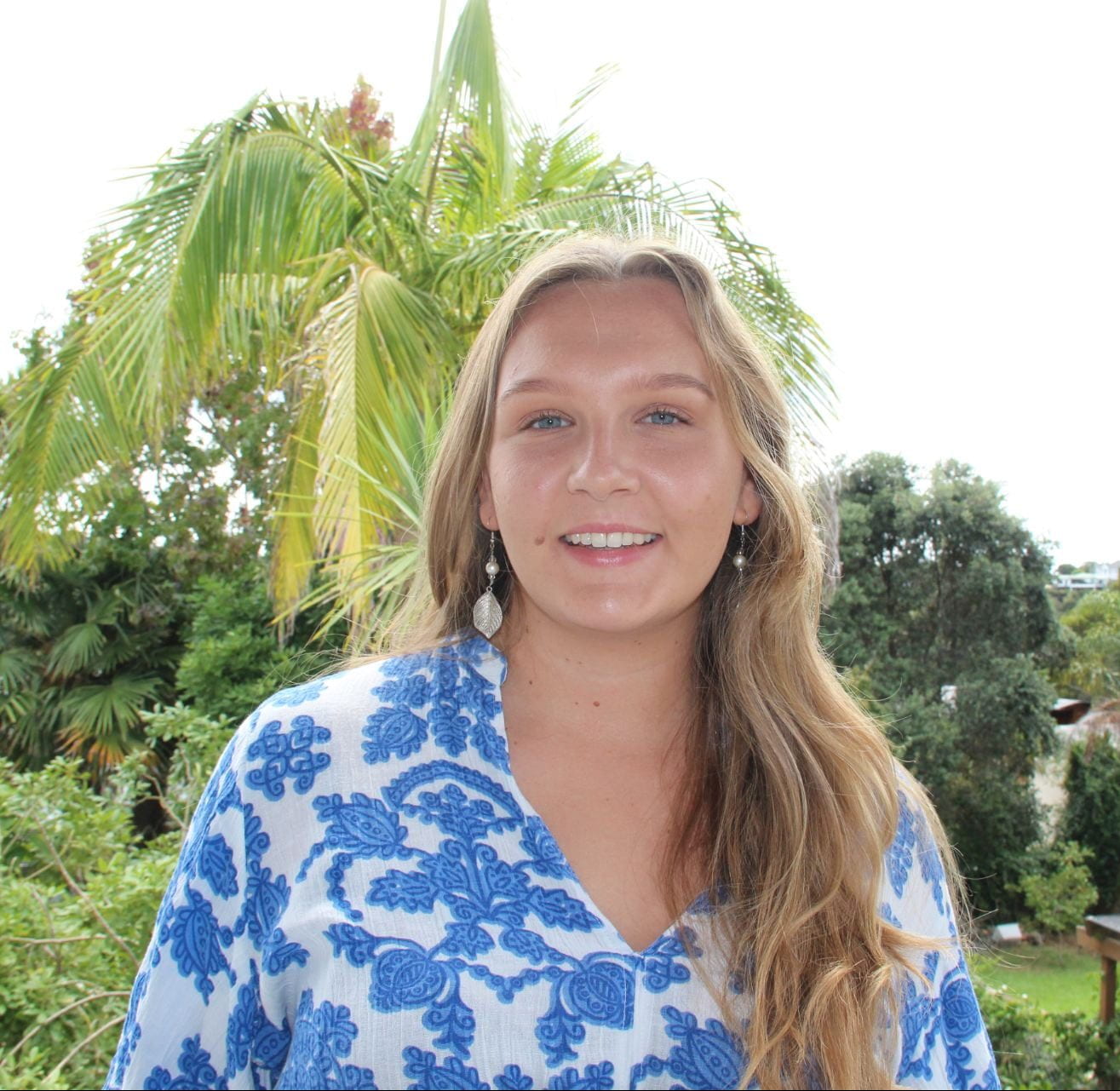
Saana Judd
Saana has just finished her BA at the University of Auckland, majoring in Politics and Anthropology, and is starting her Honours year in Politics and International Relations.
Saana’s project focused on three women’s political groups operating in Auckland at the turn of the twentieth century and their perspectives on the Contagious Diseases Act 1869. A controversial and divisive topic at the time, the conversations around the C.D. Act exposed a split in the feminist consciousness of late-nineteenth century Auckland. By analysing the difference in opinion between the groups, and the criticism that one group received for their stance, Saana’s project revealed the presence of a dominant feminist narrative and the idea that there was a ‘right’ way to be a feminist in Auckland at the turn of the twentieth century. Turning the mirror towards contemporary society, Saana’s project forces us to question whether there remains a ‘right’ way to be a feminist today?
Saana would like to thank her supervisors Dr Jess Parr and Professor Linda Bryder for their support and guidance throughout the Summer Scholarship. She would also like to thank Katherine Pawley and the rest of the staff at Special Collections at the University of Auckland, whose assistance with primary source material was greatly appreciated.
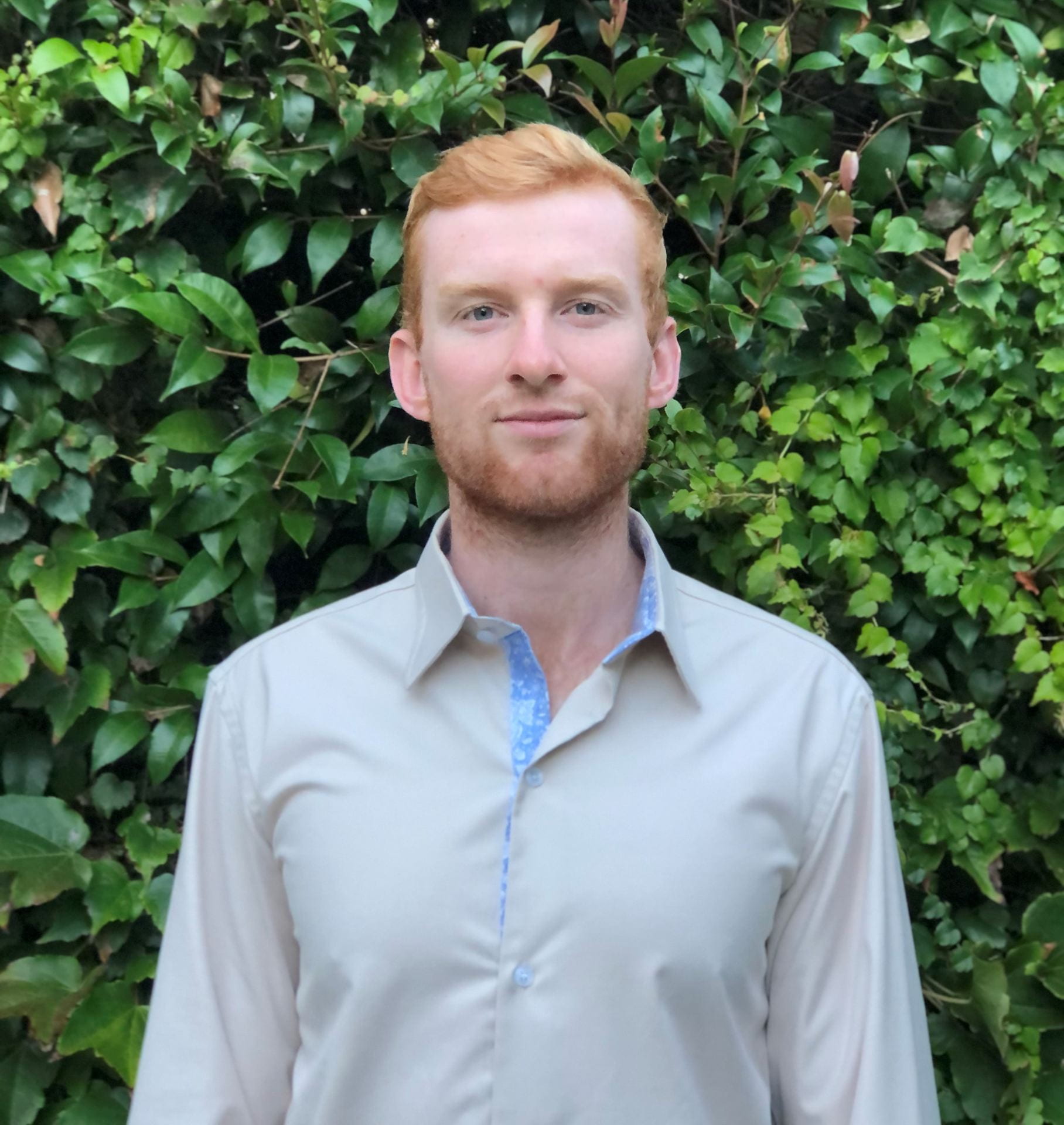
Flynn McGregor-Sumpter
Flynn McGregor-Sumpter has recently graduated from the University of Auckland with a Bachelor of Arts, Majoring in History (Hons) and Psychology. This year, he is studying to become a secondary school History teacher. Having been born and raised in Auckland, the opportunity to research something of significance from his hometown under this scholarship was very exciting. Flynn’s project focuses on the Pacific population of ‘Greater Ponsonby’ in the second half of the twentieth century. In particular, Flynn explored the attempts of Pacific migrants to remain true to their identity and culture in a new country. Through institutions such as churches, sports groups and schools, the influence of Pacific peoples remains evident in the central Auckland suburbs to this day, despite the gentrification of the area in the late-1900s.
Flynn would like to extend his thanks to his project supervisors, Dr Jess Parr and Professor Linda Bryder, for their expertise and guidance throughout the process. Further, the efforts of the University of Auckland and Auckland Council Special Collections staff were instrumental in helping him find and access important resources. He is also grateful to Erica O’Flaherty and her team for funding this research as part of their larger project related to developing resources for the Aotearoa New Zealand history curriculum. Lastly, Flynn would like to acknowledge the Auckland History Initiative and his fellow scholars for helping him construct a narrative that he can be proud of.
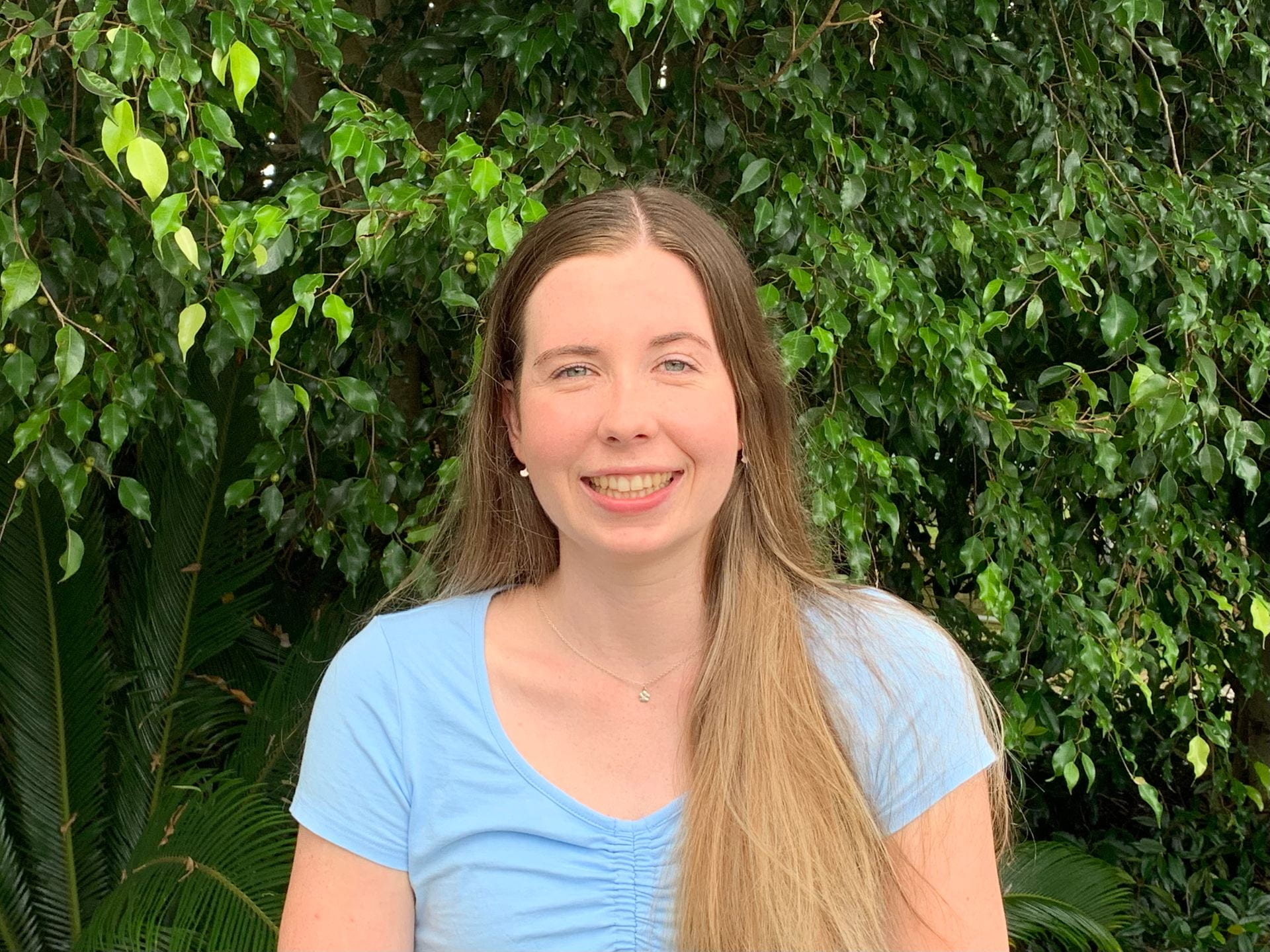
Angela Black
Angela Black is going into her fourth year of a Bachelor of Law/Bachelor of Arts conjoint degree, majoring in History and Economics. Having moved to Auckland from overseas 5 years ago, Angela was delighted by the opportunity afforded by this scholarship to explore the history of the city she now calls home. Her project centres around one of the North Shore’s most iconic landmarks, the Chelsea Sugar Factory, which has been operating as New Zealand’s only sugar refinery for 138 years and everyday delivers sugar to thousands of manufacturers and household kitchens throughout Aotearoa. In particular, Angela’s project explores the historical reasons for a collective anxiety which tore through Birkenhead residents in 2006, when it was feared the factory would be relocated due to an application to rezone the land for residential purposes.
Angela would like to extend a massive thank you to her supervisors, Dr Jess Parr and Professor Linda Bryder for their support and guidance throughout this project; as well as to the librarians at Auckland Council; and Ian Brailsford and the rest of his colleagues at the University of Auckland Special Collections for assistance in accessing resources for this project. Angela would also like to acknowledge the Auckland History Initiative, the generous donors of the Jonathan and Mary Mason scholarship in Auckland History and her fellow scholars – thank you for all your support along the way.
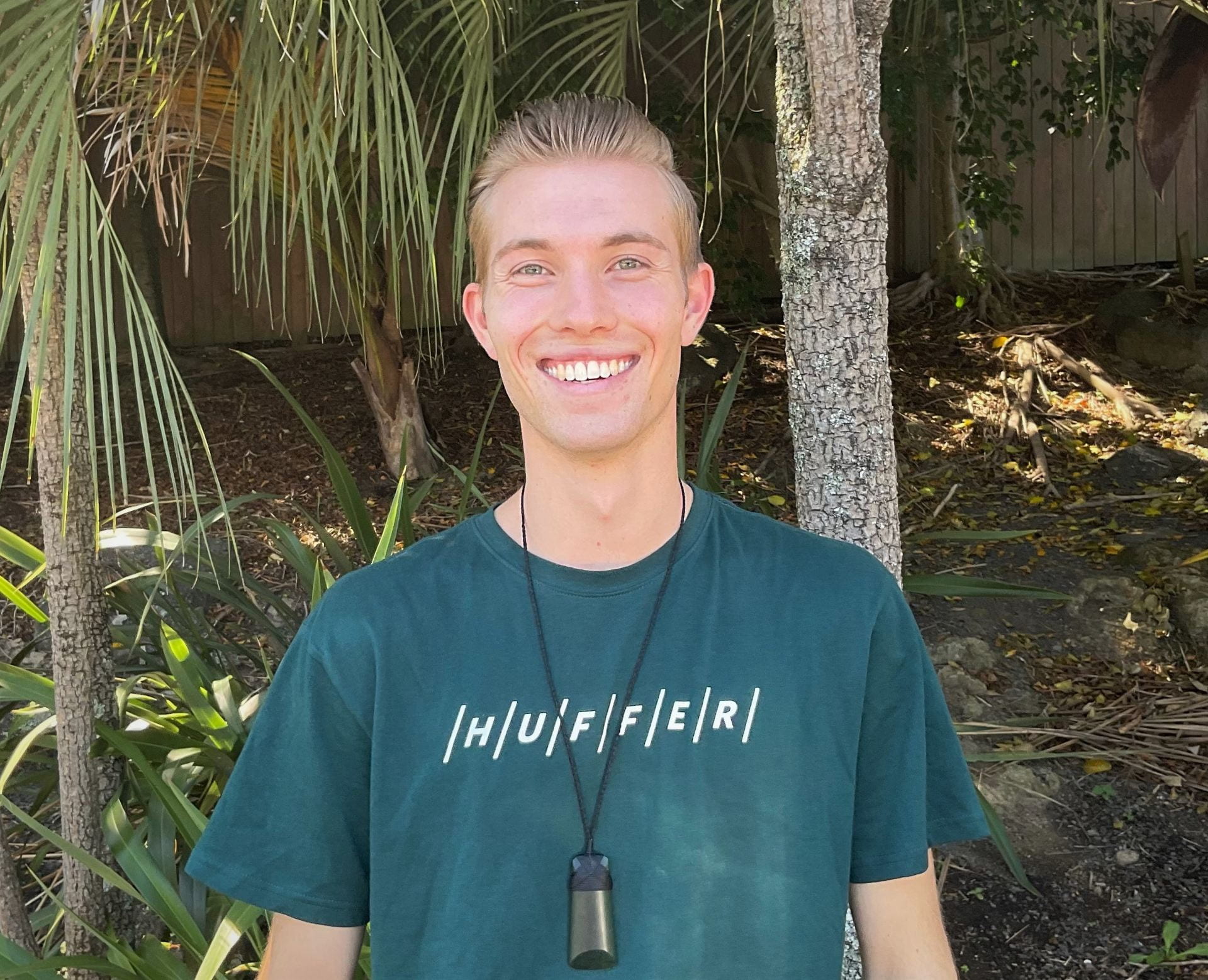
Blair McIntosh
Blair McIntosh is a postgrad student at the University of Auckland who is currently completing his honours year in history. Growing up, Blair spent endless hours helping his Mum prepare materials for her weekly social studies lessons — a past-time which clearly rubbed off on him considering his love for history and desire to eventually train as a secondary school teacher too.
Intrigued to know more about the history behind one of Auckland’s most iconic landmarks, Blair’s project delves deep into Rangitoto’s past to reconsider what this Island represented for generations of Aucklanders drawn to its shores during the late-nineteenth and early-twentieth century. Blair would like to acknowledge his supervisors, Dr Jess Parr and Professor Linda Bryder; the generous sponsorship of Jonathan and Mary Mason; the wonderful team from Auckland Libraries, especially Elspeth Orwin, special collections archivist and member of the Rangitoto Island Trust; Danielle Carter from New Zealand Maritime Museum; Gretel Boswijik, for her input on the earlier stages of this project; Susan Thomas from Rangitoto Island Historic Conservation Trust, and finally his fellow summer scholars who grew on this journey with him. He cannot thank all the insights, support, and guidance these individuals gave enough.
Finally, Blair would like to dedicate his work to the memory of his late Nana, Maureen Freeman, who unfortunately passed away during the writing of his research. Like many Aucklanders, Blair’s Nana had a strong affinity to Rangitoto Island which she always looked out at from the living room window of her house. Hopefully, this project does justice to the memory of her and many others who have considered Rangitoto Island as part of the place they called ‘Home’.
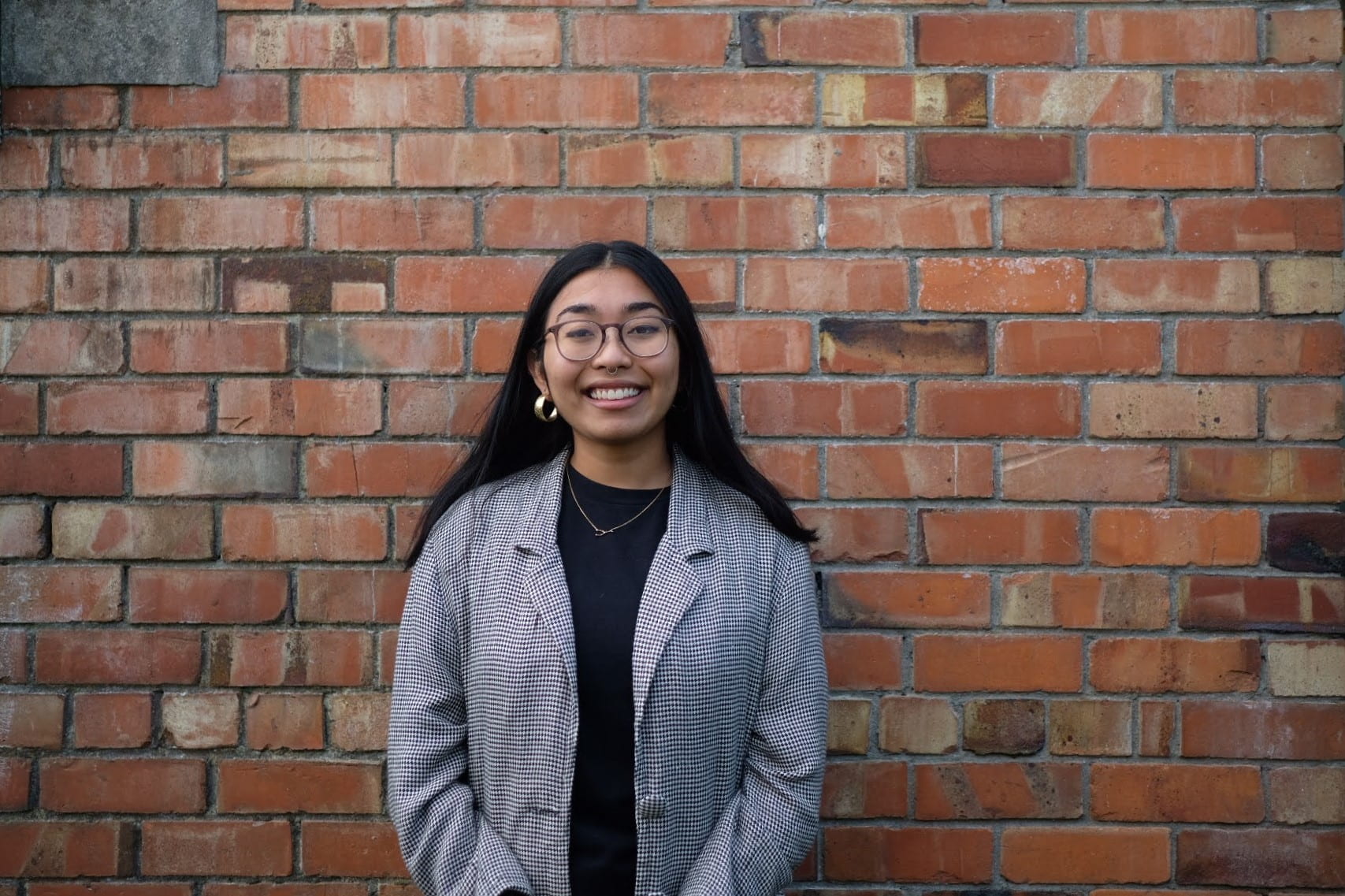
2021 Summer Research Scholars
Laura Prahash
Laura Prahash is currently in her final year of a conjoint Bachelor of Arts/Bachelor of Science degree, majoring in History, Chemistry, and Physics. Her project examined the history of international students in Auckland over three time-periods: the first international students who came in the 1950s as part of the Colombo Plan, the Malaysian students in the 1970s who faced several discriminatory policy changes, and the influx of Chinese students in the early 2000s.
Laura uses the experiences of international students to explore foreign aid and immigration policies, as well as how the media impacts and influences the relationship between these students and the wider Auckland community. She would like to acknowledge her supervisors, Dr Jessica Parr and Professor Linda Bryder; Katherine Pawley and the rest of her colleagues in the University of Auckland Special Collections; Renée Orr and the Research Central team; and her fellow AHI scholar Helena Wiseman – their knowledge, support, and assistance has been invaluable, and this project would not have come together if it wasn’t for their input.
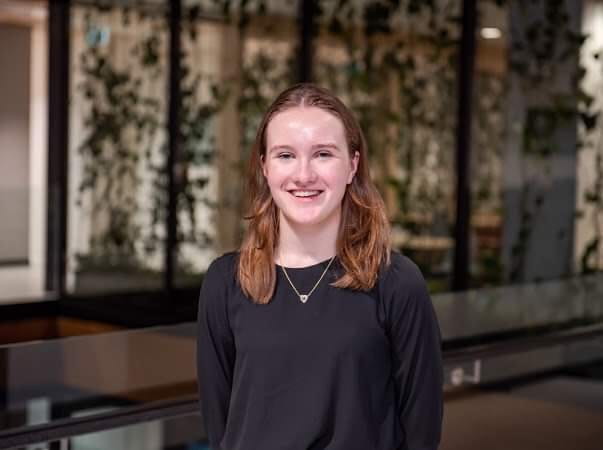
Helena Wiseman
Helena Wiseman is a 4th year student studying History and Law at the University of Auckland. She cannot remember the time before she loved history, and has studied it throughout her education. Helena’s project examines the experiences of Dalmatian immigrants who moved into Auckland’s central suburbs after the wars.
Inspired to investigate the story of her own family, the research has revealed that the relationship between Dalmatians and Auckland is symbiotic, and full of tension, politics, and the search for home. Her research was generous funded by a Jonathan and Mary Mason scholarship in Auckland History. Helena would like to thank her supervisors, Dr Jessica Parr and Professor Linda Bryder, for their support and insight, and the University of Auckland Special Collections and Auckland Central Libraries librarians. She would also like to give special thanks to the archivists at the Dalmatian Genealogical and Historical Society Archives. Their wealth of knowledge and support have been invaluable to this project.
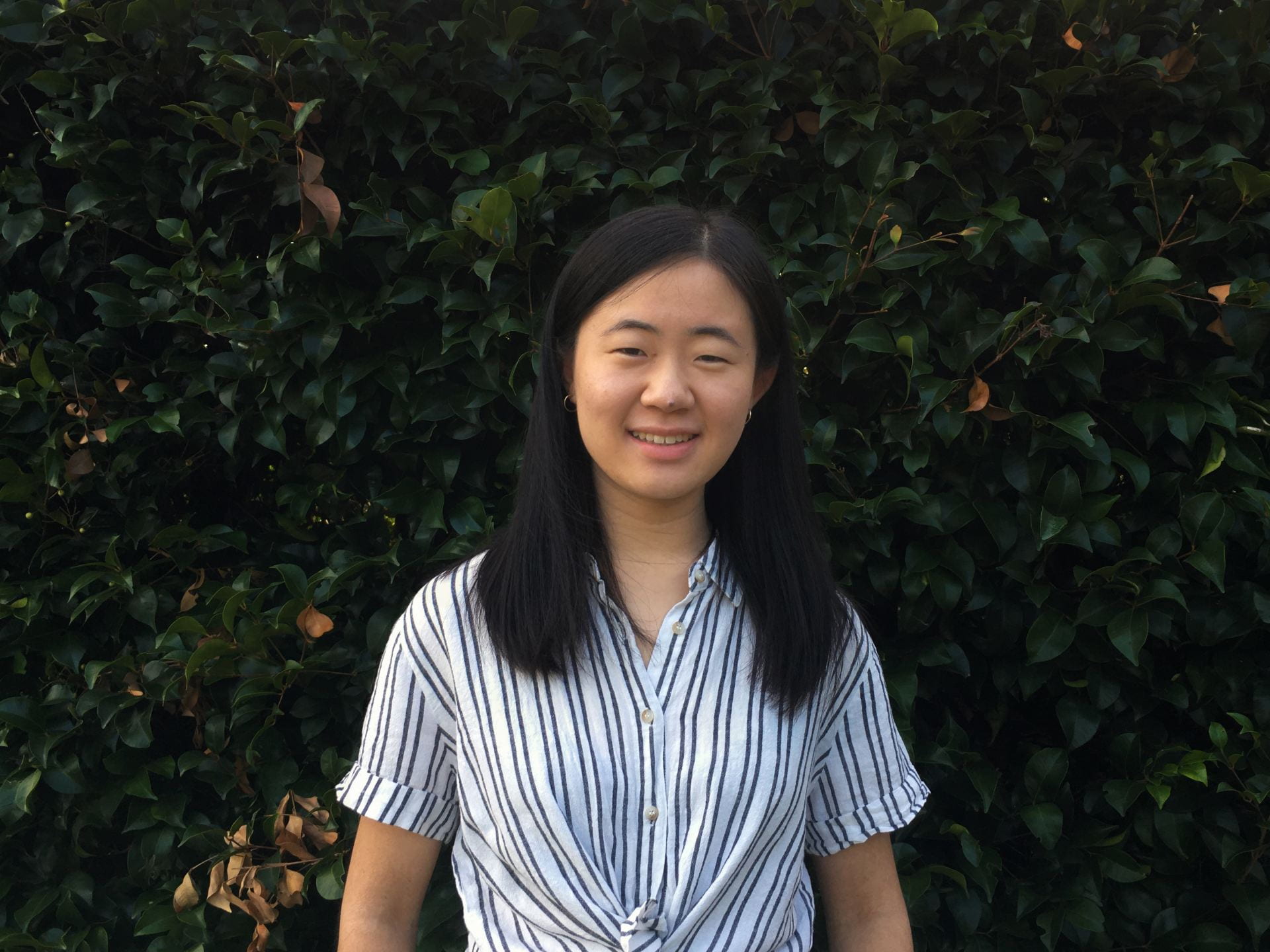
2020 Summer Research Scholars
Hanna Lu
Hanna Lu attended Epsom Girls Grammar School, where she enrolled in History on impulse and found herself unable to leave. She continued into the University of Auckland with a Bachelor of Arts in History and Politics, which she due to graduate from in the latter half of 2020.
Hanna was one of four students awarded a 2020 Summer Scholarship out of a highly competitive field. Her project focused on a group of Chinese families in Auckland in the twentieth century and she describes this topic as a timely one. As we grapple with the urgent need for ethnic diversity in history, this research highlights moments of grace in Auckland’s past, and suggests a reorientation in the way we write about ethnicity and what Auckland has been to its people.
Hanna would like to acknowledge her supervisors Dr Jessica Parr and Professor Linda Bryder from the University of Auckland; David Wong and Lisa Truttman from the Chinese New Zealand Oral History Foundation; staff from the Auckland Libraries’ research centres and the Sir George Grey Special Collections, Sue Berman and Natasha Barrett in particular; summer scholarship alumnus Nicholas Jones; and of course her fellow scholars, friends and family — sincerest thanks for their trust, support and wisdom.

Isabella Wensley
Isabella is in her third year of a conjoint Bachelor of Arts/Bachelor of Laws, majoring in History and Politics at The University of Auckland. Prior to university, she attended Epsom Girls Grammar School.
Out of a highly competitive field, Isabella was one of four students awarded a 2020 Summer Scholarship at the University of Auckland. Her research project centred on one of Auckland’s most iconic spaces; Maungakiekie/One Tree Hill. Isabella used this space to examine the different meanings and uses that have been applied to this iconic green space throughout the twentieth century. This wide topic allowed for the exploration of a range of themes including Māori activism, the relationship between residents and their local greenspaces and the tensions this creates. The history of this area reflects how external events, changing social attitudes and beliefs, and changing political influences have shaped Auckland and its people.
Isabella would especially like to thank Philippa Price and the Cornwall Park Trust Board, the Auckland Council Archives, the Auckland History Initiative and her supervisors Dr Jessica Parr and Professor Linda Bryder for their assistance in accessing resources and their expansive knowledge.
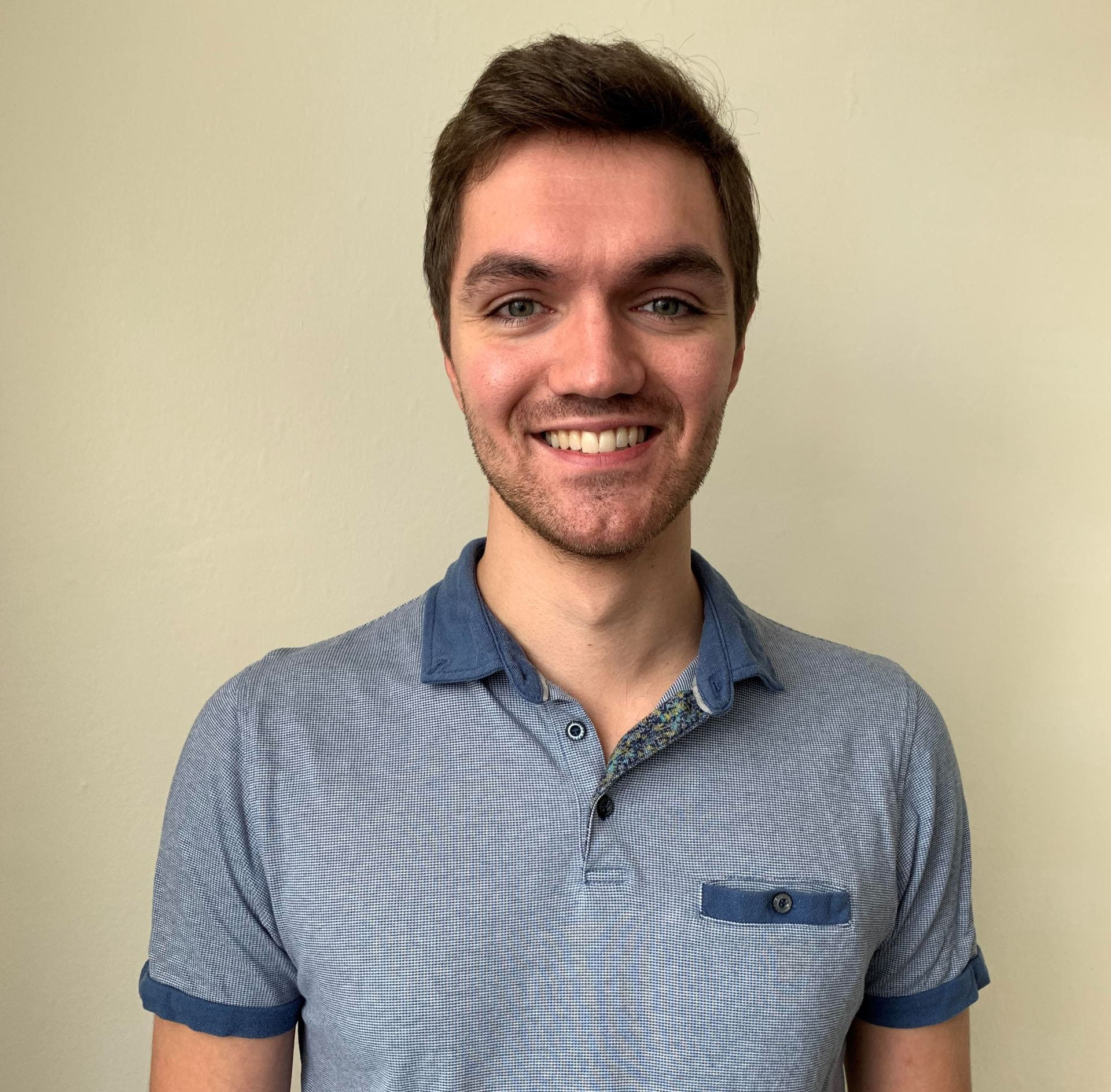
Tom Wilkinson
Tom is currently completing a Master of Arts in History at the University of Auckland. For his undergraduate study he completed a conjoint Bachelor of Arts (honours) and Bachelor of Science in History, Anthropology, and Geography. Out of a highly competitive field, Tom was one of four students awarded a 2020 Summer Scholarship at the University of Auckland.
Before moving to Auckland for tertiary study, Tom grew up in Christchurch, where the earthquakes of 2010 and 2011 radically altered the city’s built environment and stripped the city of some of its heritage. It was with this in mind that he chose to look at Parnell over the course of his summer research project. His project examined the history of the suburb of Parnell during the post-war period and explored the social and physical changes which occurred over the latter half of the twentieth century.
Tom extends his warmest thanks to staff at Auckland Central City Library, Auckland Council Archives, and the Parnell Heritage Society for their assistance over the summer. He would also like to acknowledge the incredible assistance granted by the Auckland History Initiative, Professor Linda Bryder and Dr Jessica Parr over the course of the Summer Scholarship.
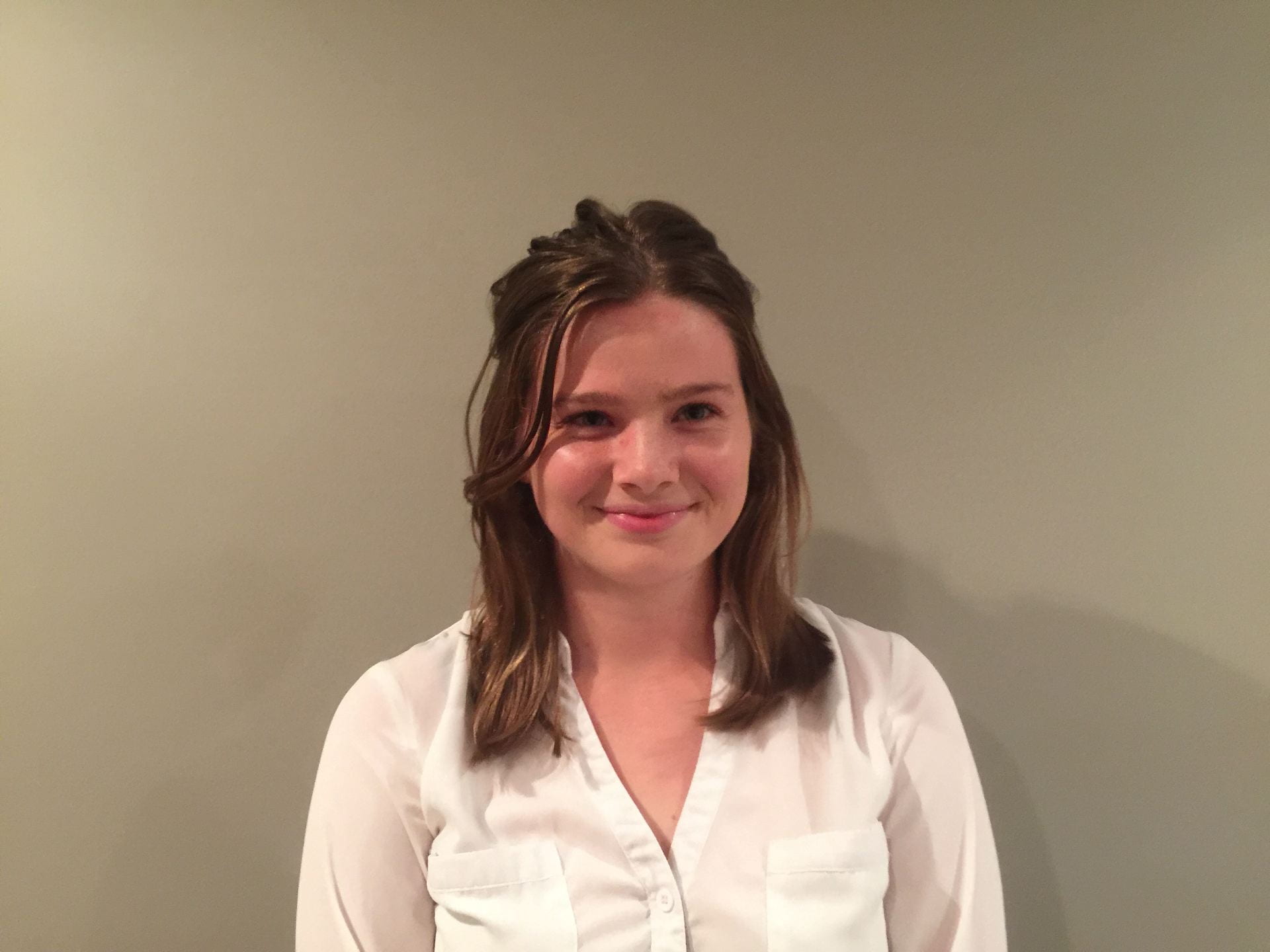
Brooke Stevenson
Brooke is currently completing her final year of a Law and Arts conjoint degree at the University of Auckland, double majoring in History and Ancient History.
Brooke was one of four students that was awarded a 2020 Summer Scholarship at the University of Auckland and her award was funded by a Jonathon and Mary Mason Scholarship in Auckland history. Her research project explored women in Auckland politics. She focused her efforts on two women, studying the motivations, methods and achievements of Mary Dreaver and Mere Newton.
Brooke would like to acknowledge the generosity of Jonathon and Mary Mason for funding her scholarship. She would also like to extend a special thanks to Vicky Spalding and the team at Auckland Council Archives, and her supervisors Professor Linda Bryder and Dr Jessica Parr.
2019 Summer Research Scholars
Nathan McLeay
Nathan McLeay is currently completing his honours year in History at the University of Auckland, having completed a Bachelor of Arts majoring in History and Geography in 2018. Before moving to Auckland for study, he attended Hillcrest High School in Hamilton.
Nathan was one of four students awarded a 2019 Summer Scholarship at The University of Auckland out of a highly competitive field and his award was funded by a Jonathan and Mary Mason Scholarship in Auckland history. His research project explored the history of the Auckland Harbour Bridge. It followed the development of the bridge since its earliest imaginings, discussing how the bridge was received by the public and it reflected on some of the lessons that we in the present can learn from the bridge’s history.
Nathan would like to extend his warmest thanks to staff at Takapuna Library, Central City Library, and Auckland Council Archives, as well as to his supervisor, Linda Bryder (Professor at the University of Auckland), and to Bill McKay (Senior Lecturer at the University of Auckland), for their generous assistance throughout the project.
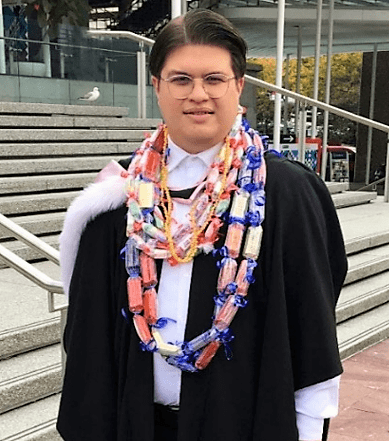
Nicholas Jones
Kia ora, I whakapapa to Tuhoe and Nga Puhi.
Nicholas attended Trident High School in Whakatane. He completed his undergraduate studies at the University of Auckland with a major in History and a minor in Art History, graduating in 2018. Nicholas went on to complete Honours in History, graduating with first class honours. He is now beginning Masters in Asian Studies at the University of Auckland.
During his summer scholarship, Nicholas was fortunate enough to partake in the Mana Whenua project, supervised by Professor Linda Bryder. His project was focused upon fleshing out the social history of Auckland’s Maori Community Centre.
This research benefited greatly from the guidance and help from the Auckland Libraries staff. Nicholas would like to extend special thanks to Rob Eruera, Jane Wild, and the staff from the Sir George Grey Special Collections.
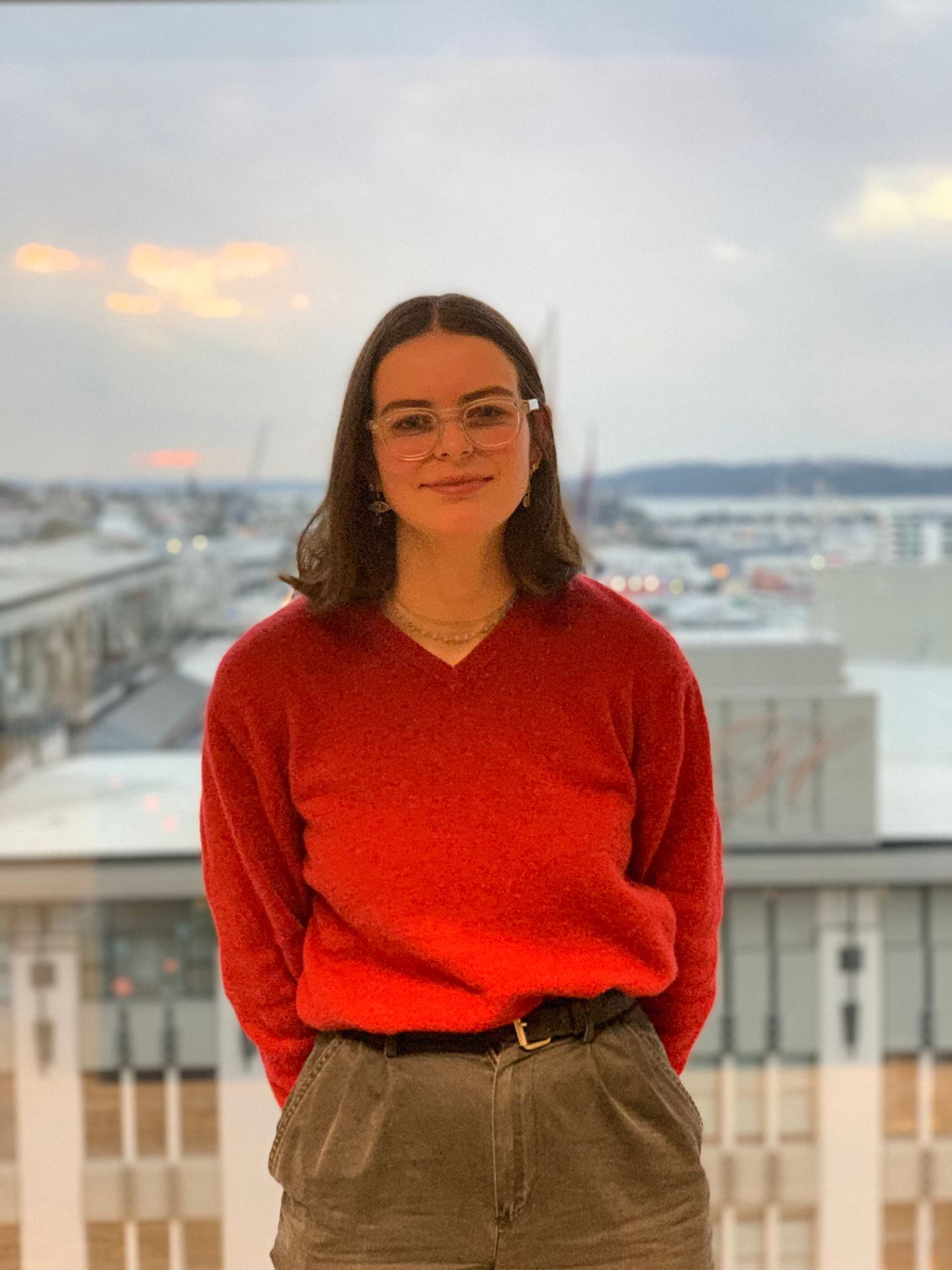
Nancy Mitchelson
Nancy is currently completing her honours year in History at The University of Auckland, having completed a Bachelor of Arts. She attended Epsom Girls Grammar, where her interest in history was fostered.
Nancy was one of four students awarded a 2019 Summer Scholarship at The University of Auckland out of a highly competitive field and her award was funded by a Jonathan and Mary Mason Scholarship in Auckland history. Her research project focused on the efforts to Pedestrianise Queen Street in May of 1979. Nancy describes this area of study as a niche topic, but one that is interesting as it allowed the examination of council planning and bureaucracy, the impact of urban sprawl, and the process of establishing purpose for Auckland’s central area. With multiple streets in Auckland’s CBD soon to be closed to cars, these lessons from 1979 are becoming increasingly relevant.
Nancy would like to extend special thanks to Vicky Spalding and the team at Auckland Council Archives, the team at Sir George Grey Special Collections, her supervisor, Linda Bryder (Professor at the University of Auckland) and to Bill McKay (Senior Lecturer at The University of Auckland) for their help and expansive expertise.
Sample our Scholar’s Work:
Bridging the East and West: the First International Students in Auckland
by Laura Prahash*
Many of us, myself included, tend to take the presence of international students for granted. With this pandemic preventing many international students from staying in or entering Auckland, it’s become increasingly clear how valuable their participation on campus and in our society is.
“Mere Cold Stone” The Different Meanings of the One Tree Hill Obelisk
By Isabella Wensley*
The Maungakiekie/One Tree Hill obelisk is one of the most distinctive landmarks in Auckland. Standing at odds with its natural landscape, it rises 100ft above the summit, its sharp concrete angles contrasting with the rolling grassy hilltop it sits upon.
Parnell: The Patchwork Suburb
by Tom Wilkinson*
Parnell, as one of Auckland’s oldest suburbs, has a history extending back to the early settlement of the area. When Pākeha arrived in New Zealand and began obtaining land, the area which we now call Parnell was one of the earliest acquisitions.
The Standing Point: Studying the History of Auckland’s Chinese People
by Hanna Lu*
History is not about us. I mean, the people involved are usually not us. But the stories we tell are about ourselves, and who we’ve been, and what we mean when we say ‘ourselves’. Are there concepts of who we are that rest on the exclusion of certain groups?
Women Emerging from the Auckland Political Scene: Introducing Mere Newton and Mary Dreaver
by Brooke Stevenson*
Auckland’s female political history has been more vibrant and diverse than one might assume. After trail blazers such as Elizabeth Yates and Ellen Melville, we see the emergence of women who become experts in mastering the art of networking and public speaking, bringing their own feminine approach and experiences into local and national level politics.
Stopping the Rot: The Central Area Plan, Sir Dove Myer Robinson, and searching for the purpose of Central Auckland in the 1970s
by Nancy Mitchelson*
It was the 1970s, and Auckland’s central area was facing a crisis of purpose. This crisis had been brewing for some time, born out of the growth of the motor car, a rapidly expanding motorway network, and developing state housing in an emerging suburbia.



